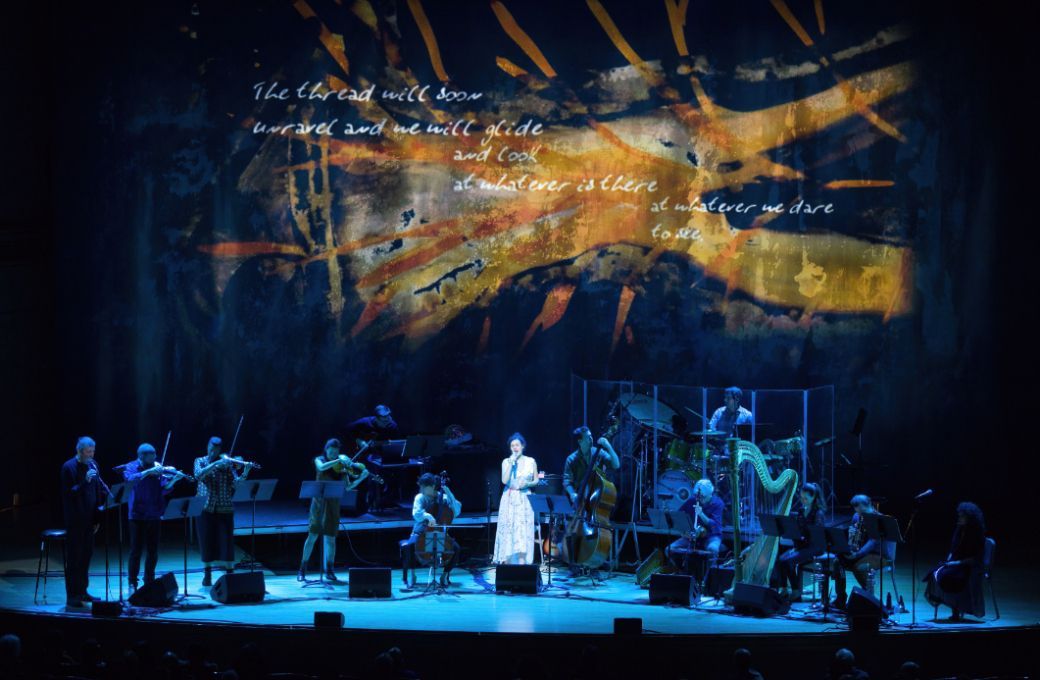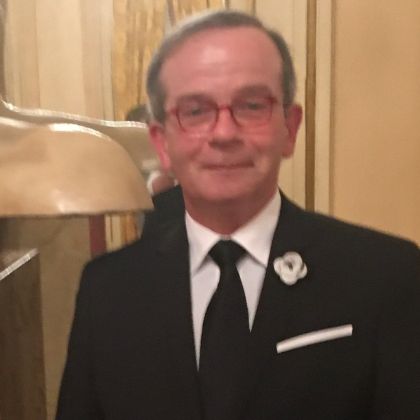Author David Grossman lost his son when a missile struck his tank, shortly before the Lebanon War cease-fire took effect. Grossman, along with fellow writers Amos Oz and AB Yehoshua, had held a press conference two days previous, publicly urging the government to accept the cease-fire and reach a negotiated settlement. Eight years later, he chronicled his journey through grief in Falling Out of Time, a hybrid allegory, part play, part novel in verse. A man sets out to find “there” where his dead son is. Walking in ever widening circles which spiral out from his village, he draw others from all walks of life who have similarly suffered into the journey with him. His wife warns him that there is no “there”, but the man must walk. So he and the others fall out of time into a timeless space, seeking someplace that does not exist except for the dead. There is no “there” but “here” for the living; there is no place to go; grief is inescapable and must be endured.

When Osvaldo Golijov read Falling Out of Time, it left a lasting impression and he began to toy with creating a “tone poem in voices”. The Silk Road Ensemble ultimately commissioned the composer, then premiered and recorded the piece. Golijov’s typically eclectic style was the perfect musical analog to Grossman’s potpourri of genres and the universality of grief they convey. He wove a tapestry of Middle Eastern, Sephardic and South American idioms and rhythms, flecked with jazzy, bluesy improvisational outbursts and rock riffs. Singers sang, chanted, wailed and spoke on pitch, most often in the original Hebrew. Translations were superimposed in script on the abstract projections, based on the works of the English visual artist, Mary Frank. Stage lighting helped set the mood, with various grades of darkness prevailing.
Silk Road’s members made up the bulk of the performers on-stage Sunday afternoon, but with changes in instruments (a harp took the place of the pipa on the world premiere recording), soloists (Yoni Rechter as the Man), the music and the order of the episodes themselves. Two violins, viola and double bass were augmented by electric bass, electric guitar, brass (including the strident zurna), percussion and a drum kit. Kayhan Kalhor added a Middle Eastern color, playing the kamancheh, a bowed string instrument, and a version of it with sympathetic strings he helped create, the shah kaman. A modular synthesizer contributed a film noir eeriness to the mix.
Everything was amplified and sonically manipulated with an echo being the most frequent effect. Amplification in Symphony Hall is tricky, however. In this case, it occasionally created problems with balance and clarity. Rechter suffered the most. At times he was barely audible, robbing his character of the centrality it demands. Golijov’s frequent collaborator, Biella da Costa sang and wailed with raw emotion and maternal despair and resignation as the Woman.
Nora Fischer endowed the white shift-clad Centaur, with a hieratic presence and scaled its vocal dynamic and dramatic range with warmth, heft and conviction. A combination of narrator and chorus, hers was the only character to step out and use the open area of the stage. Golijov’s vocal tone poem closes on a fade-out. At this performance, however, the words weren’t sung but whispered progressively softer until silence filled the hall and the dimming lights went out.
The repetitiveness inherent in the piece’s circular narrative presents a challenge and results in some languors. Combined with the problems caused by the amplification, they deadened the full impact of the tone poem to a regrettable degree. Fortunately, the 2020 recording exists to demonstrate the full power of Golijov’s composition.


